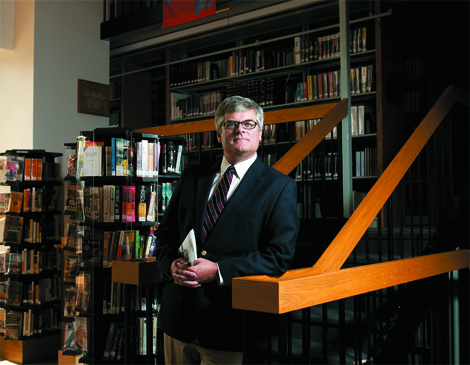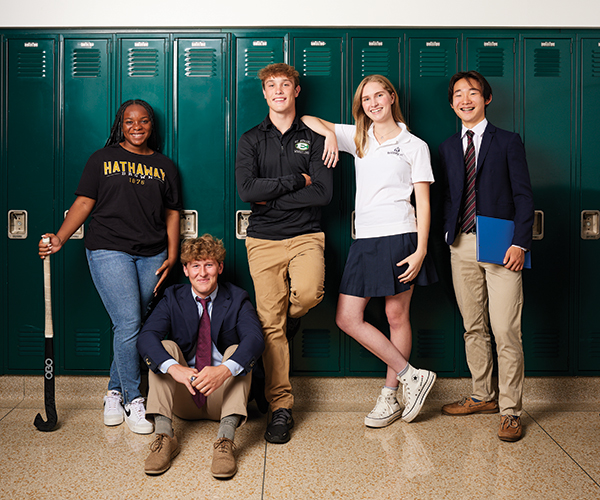University School
Jim Garrett does more than teach literature. The head of University School's Upper School English Department pens it. Last year, Finishing Line Press published Innkeepers of Shorelight, the 53-year-old's second chapbook of poetry.
I wanted to write because I wanted to express myself in one way or another. Maybe it's because I didn't learn to play guitar.
I like poetry because it's a small form. It can go beginning, middle and end in a short space.
High-school boys in general don't love poetry.
They think of poetry as being about flowers and love and sunsets. What we try to do, especially at a boys school, is select poems that will get to them.
There's a great short poem by Theodore Roethke called "My Papa's Waltz." It's unclear as the poem goes on, when the father gets home late at night, whether he's waltzing and joking around with his son or whether the language of the waltz is describing a scene of a father hitting or abusing his son. Boys, they brace — they know that this is something real."
The initiative to go to the library, pick out a book, find a new author — I don't see that as much, partly because students can turn on any TV and get 500 stations.
I love Bruce Springsteen. I think he's a poet. His lyrics have all the makings of good writing, good poetry."
My family settled in New Jersey when I was in sixth grade and lived there through much of the next bunch of years. We had a house right on the ocean in Monmouth Beach. Even before that, when we were living in Pennsylvania, my parents would take us to the Jersey Shore in the summer. So I had these very vivid childhood memories of walking on the beach, swimming in the ocean, going on shell hunts, those sorts of things. Some of my poems are expressions of the childhood memories, some filtered through the adult perspective.
People read their own childhood experiences into the poems. I didn't expect that.
One of the other English teachers said, "Why do you date your poems? You don't usually see that." I said, "I wanted to try to put the poems in the time and the place, the era that inspired them."
One of the things I like the most is to listen to students in the classroom, ask them follow-up questions and push them in their interpretations. We're really talking about the most important things in an English class — things like life and death, love and relationships, fathers and sons, morals and values, sin and crime.




